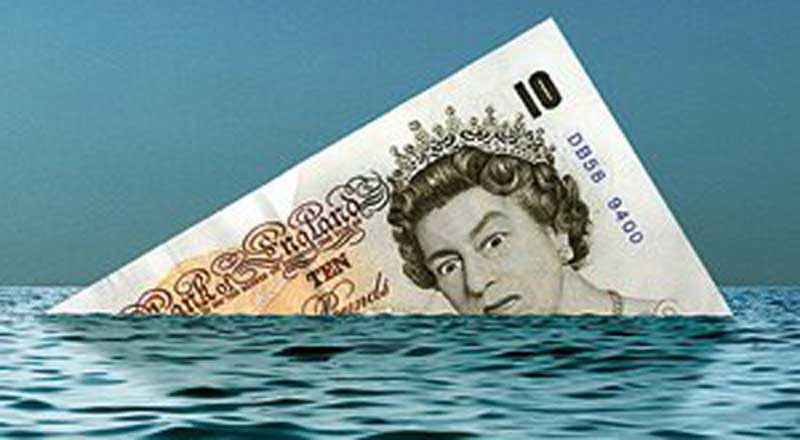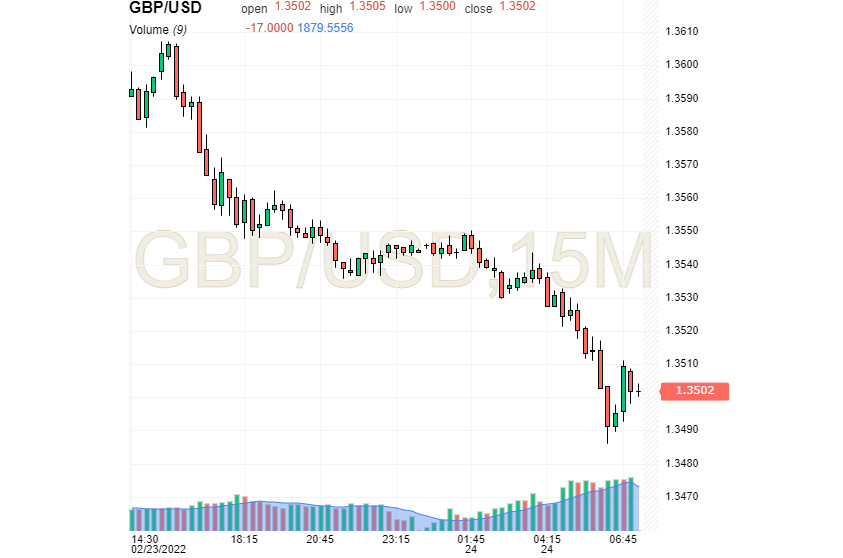
At the end of the week, the British currency lost its hard-won positions over the previous days. The pound succumbed to panic moods associated with the geopolitical conflict around Ukraine, although it has been on the defensive for a long time.
The pound's plunge is facilitated by the rapidly growing inflation that the UK has faced over the past 30 years. Recall that its annual level was unexpectedly high in January. According to reports from the UK Bureau of National Statistics, in the first month of 2022, consumer prices in the country fell by 0.1% after a 0.5% increase in December, and inflation suddenly accelerated to 5.5%.
The comments of Bank of England Governor Andrew Bailey added fuel to the fire. According to the official, "there are clear risks of increased inflation, but the markets should not get carried away with another rate hike." At the same time, Bailey admits that the central bank will raise the interest rate in the near future, rightly emphasizing that the concept of "temporary" in relation to inflation "has become used too often."
Following Bailey's statements, the pound, which gained height in the GBP/USD pair and is near 1.3600, slipped. The current geopolitical tension associated with the tense situation around Ukraine also contributed to the pair's decline. The geopolitical conflict adversely affects the dynamics of the pound and the greenback. On the morning of Thursday, February 24, the GBP/USD pair moved in the range of 1.3501-1.3502.

Subsequently, the pair began to decline. The GBP/USD pair entered a downward spiral, cruising near 1.3497 and showing a tendency to subsidence. However, the search for the bottom for the pound will be the point from which it will push off and begin its way up.
Commenting on the BoE's decision to raise interest rates in the short term, Bailey focused on the risk of keeping inflation at a high level. The key topic for the central bank is the immediate prospects of the British economy, which is relevant against the background of another inflationary round.
The UK authorities are concerned about whether the economy will be able to maintain stability in the current realities. Jonathan Haskell, a representative of the Bank of England, asks a similar question. According to the official, "the current geopolitical conflict contributes to the increased risk of the inflation forecast." An additional factor of pressure on the British economy is the rise in world gas prices, "increasing the risk of further inflation."
Against this background, there are disputes about the further direction of the monetary policy and the BoE's rate hike. The uncertainty of the current situation makes it difficult to forecast economic growth in the country. According to experts, in the near future it will be necessary to tighten the monetary policy in order to curb inflation and prevent its negative impact on wages and prices.
The current situation is unfavorable for the British currency, although it is trying to stay afloat. The pound was tripped up by the increase in the yield of treasuries on the US stock market. Against this background, the yield spread between British and US securities showed an anti-record, falling to a three-week low. The current situation contributed to the pound's decline.
According to analysts, the next rise in the key rate will be a lifeline for the pound. Many investors are counting on an additional 0.25% rate hike at the next BoE meeting, which is scheduled for March 17. However, now experts recommend selling GBP, which tends to push off from the low.





















